Koudai treats Takuya with relentless cruelty. In the dream that precedes the Prologue, aside from claiming his wife’s breasts belong “solely to [him],” he physically abuses his infant son, condemns the literal baby for not being a “real man,” and says of him, “I don’t give a damn about this weakling.” When Takuya completes the ADMS section, a monumental challenge of tens of hours of trial and error and life-and-death struggle and the bulk of the effort involved in completing the video game, Koudai greets the player with the words, “Wake up, dumbass,” and proceeds call Takuya a “bum who leaves his bed for naught but food.”
In YU-NO, Koudai’s nonstop nastiness and fixation on his child’s sexuality are not dysfunction but reasonable parenting. In YU-NO, for not accepting Koudai’s “way of living” and being a “man,” Takuya is the immature one.
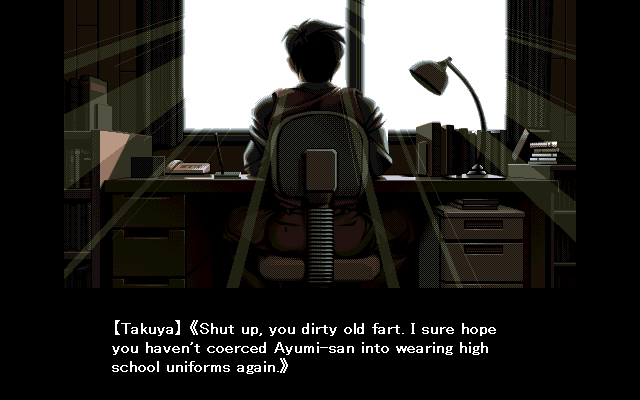
In YU-NO, Koudai is not a wildly self-aggrandizing, abusive old man who grooms his decades-younger student Ayumi into marriage and, to emphasize the nature of their relationship, has her dress up in a high school uniform for sexual roleplay. In YU-NO, Koudai is not a man so loathsomely pathetic and insecure that he berates his baby son as a sexual rival. Instead, Koudai is what, online, would be called an alpha chad, the ideal of manhood, an embodiment of virile aggression and sexual potency. All the other characters whose lives Koudai has somehow touched—most especially Ayumi, Mio, and Kanna—adore him and insist he is kind, generous, and brilliant.
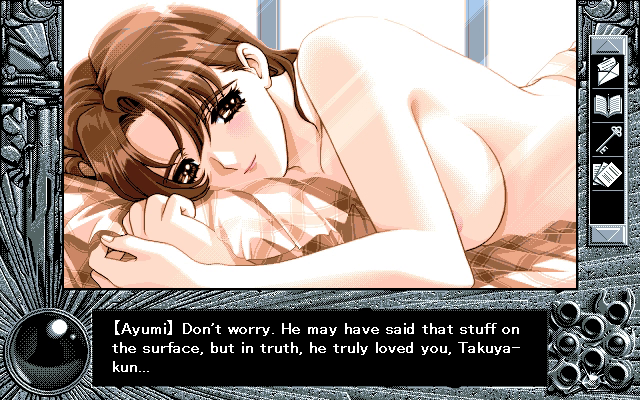
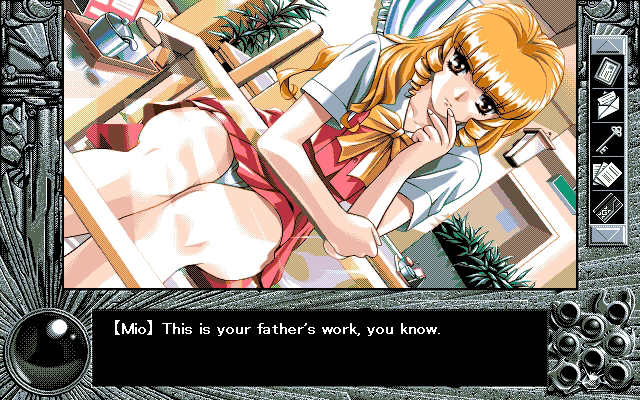
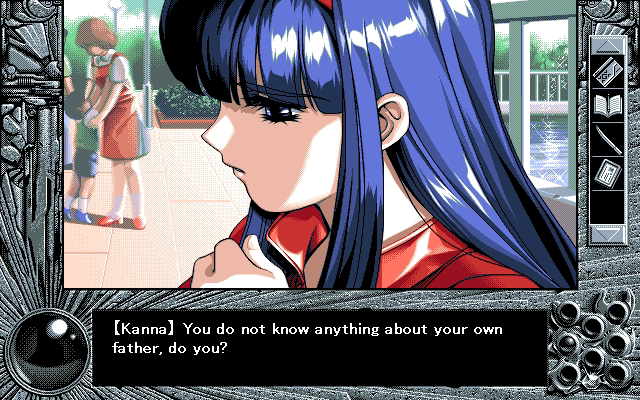
In YU-NO, Koudai’s behavior is kind, generous, and brilliant. Only Takuya has anything against his father. The positive actions other characters attest seem unimaginable given the Koudai the player interacts with. However, there is no implication Koudai abuses Kaytia or Ayumi. The player sees firsthand that Koudai’s iconoclastic theories that inspire Mio and awe Ayumi are correct. And there is no reason to doubt that Koudai showed Kanna affection and financial support without cruelty or sexual exploitation.
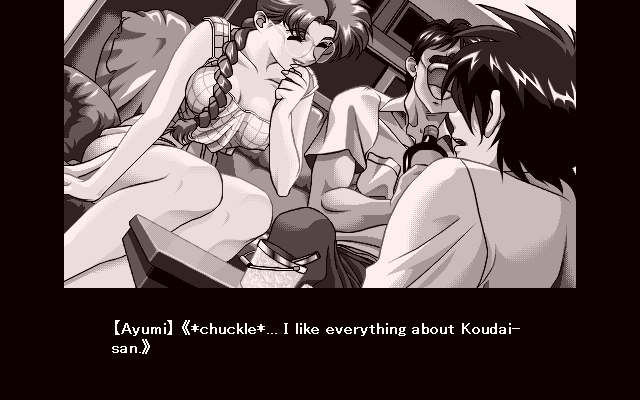
Take, as an example, the flashback of Takuya talking with Ayumi while Koudai drinks. Koudai openly proposes sexual role play based on the substantial age difference between him and his wife, a student he engaged with sexually while her professor. In what might seem like a reasonable response, Takuya resists Koudai: “Hey, this ain’t no costume brothel. Can’t you see Ayumi-san doesn’t like this treatment?” But Ayumi, smiling, laughing, and genuinely happy, responds, “I don’t mind.” Ayumi maintains an uncomplicated relationship with Koudai through to the end of the Epilogue, even after he abandons her without warning and leaves her to grieve. Even Koudai keeping a mistress for a period does not offend Ayumi: “Ayumi loves me in spite of that.” All other characters approve of and enjoy or else do not mind Koudai’s arrogance, sexism, and abrasiveness, similar to their oddly cavalier attitude toward much of Takuya’s horrible behavior. By objecting to this demeaning treatment of Ayumi, Takuya demonstrates his immaturity and envy of Koudai, who accuses Takuya, as it turns out correctly, of being jealous. Takuya has no issue with the sketchy age difference—he wants to be the one with the far younger partner who tolerates anything, in other words, with Yu-no.